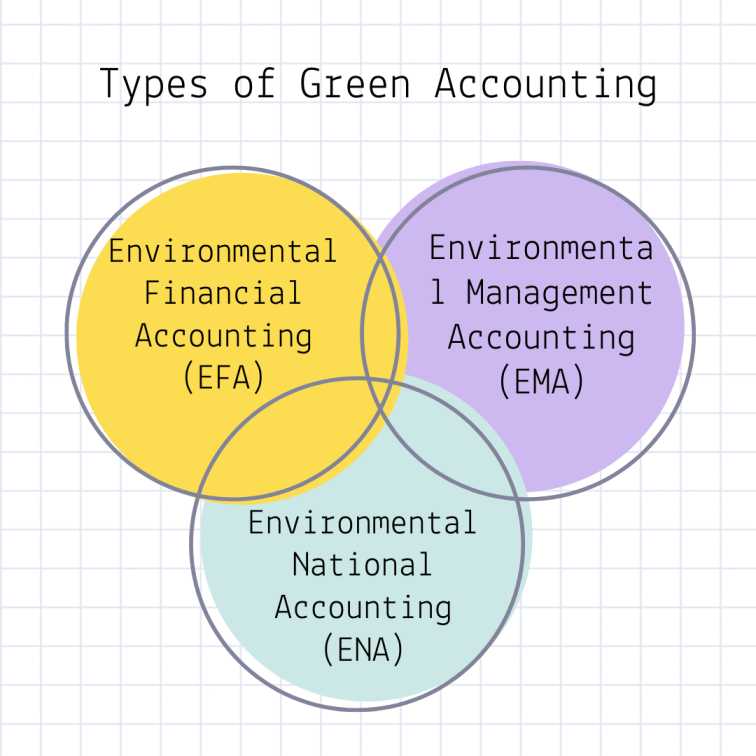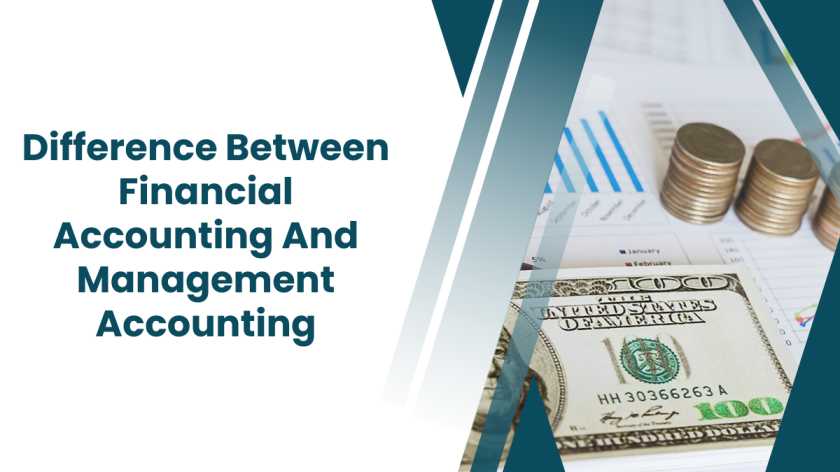Numbers can be powerful tools for business success, but sometimes accounting terminology can feel like a foreign language. When it comes to financial and management accounting, the confusion is real. Both deal with numbers, but they serve distinct purposes and cater to different audiences. Let us break down the jargon and unveil the core purposes of each accounting discipline.
By understanding the distinct purposes and audiences of both financial and management accounting, you can unlock their true potential. In this article, we will delve deeper into the unique strengths of each discipline and explore how they work together to empower your business for success. After finding out the difference between financial accounting and management accounting, we will discuss the scope of financial accounting and management accounting.
The Purpose of Financial Accounting
What is financial accounting? Financial accounting is the framework for providing a clear and standardised picture of the company’s financial performance for an external audience. Financial accounting, with its standardised reporting and focus on transparency, lays the foundation for informed decision-making by external stakeholders.
Core Purpose: To create financial statements (income statement, balance sheet, cash flow statement) that adhere to Generally Accepted Accounting Principles (GAAP) or International Financial Reporting Standards (IFRS). These statements offer a standardised snapshot of a company’s financial health, profitability, and cash flow.
Target Audience: Primarily external stakeholders like regulatory agencies, creditors and investors. These groups rely on financial statements to make informed decisions. Investors assess a company’s investment potential, creditors evaluate creditworthiness, and regulators ensure companies comply with financial reporting rules.
The Purpose of Management Accounting
What is management accounting? Management accounting is the framework that constantly monitors the operations of a company, ensuring everything runs smoothly. Management accounting is an ongoing process, creating a continuous feedback loop. The information generated helps internal decision-makers make data-driven choices, optimise operations, and ultimately steer the company towards achieving its strategic objectives.
Core Purpose: To generate reports and analyses that are specific to a company’s needs. These reports go beyond historical data and provide insights for future planning, budgeting, and optimising operations.
Target Audience: Internal stakeholders like managers, department heads, and executives. These individuals use management accounting reports to make strategic decisions, allocate resources efficiently, measure performance against goals, and identify areas for improvement.
Difference Between Financial Accounting and Management Accounting (5 Key Points)
Let us discuss the main points of difference between financial accounting and management accounting before delving into what these two systems are.
Focus
Financial Accounting: External stakeholders (creditors, investors) and historical data for transparency and compliance.
Management Accounting: Internal stakeholders (managers) and future-oriented information for decision-making.
Purpose
Financial Accounting: Creates standardised financial statements (income statement, balance sheet, cash flow statement) following GAAP or IFRS.
Management Accounting: Generates reports and analyses specific to a company’s needs for strategic planning, budgeting, and optimising operations.
Data Source
Financial Accounting: Primarily relies on historical financial data.
Management Accounting: Utilises data from financial statements along with additional internal data (e.g., sales trends, customer behaviour).
Reporting
Financial Accounting: Reports are standardised and publicly available.
Management Accounting: Reports are customised, confidential, and tailored to internal decision-making needs.
Techniques (Example)
Financial Accounting: Ratio analysis of financial statements.
Management Accounting: Cost-volume-profit (CVP) analysis, activity-based costing (ABC).
Real-World Example: The Case of the Expanding Bakery
Let’s see how these two accounting disciplines work in practice:
- Financial Accounting: Shreya owns a successful bakery. To secure a loan for expansion, she needs to present financial statements prepared according to GAAP. These statements show her bakery’s revenue, expenses, profits, and overall financial health. Investors and the bank will analyse these statements to assess the risk of lending her money.
- Management Accounting: Once the loan is secured, Shreya utilises management accounting. She might generate cost-volume-profit (CVP) analysis reports to understand how changes in production volume or pricing will affect her bakery’s profits. This information helps her make informed decisions about pricing strategies, production levels, and staffing needs for the new location.
Financial Accounting Concepts and Why They Are Different (and Important)
Now that we know the difference between financial accounting and management accounting, let us learn more about what is financial accounting. Financial accounting acts as the window into a company’s financial health, providing a clear picture for external stakeholders. This transparency is crucial for building trust and ensuring smooth financial operations. Let us learn about the scope of financial accounting
GAAP & IFRS
Think of a world where every company reported its finances differently. Analysing a company’s performance would be like trying to read a story written in a different language each time. To ensure consistency and comparability, financial accounting adheres to established frameworks:
- GAAP or Generally Accepted Accounting Principles: This is the primary framework used in the United States. It dictates how financial transactions are recorded, classified, summarised, and reported in financial statements.
- IFRS or International Financial Reporting Standards: This framework is widely adopted globally and promotes consistency in financial reporting across international borders.
By adhering to these standardised principles, financial statements become a universal language, allowing investors, creditors, and other external parties to make informed decisions regardless of a company’s location.
Compliance and the External Audience
Financial accounting is not just about transparency, it also ensures compliance with regulations. Companies are legally obligated to prepare financial statements according to GAAP or IFRS. These statements are then audited by independent professionals to verify their accuracy and adherence to the chosen framework.
External stakeholders such as the ones below rely heavily on financial statements:
- Investors: They use financial statements to assess a company’s profitability, risk profile, and potential for future growth. This information helps them decide whether to invest in the company’s stock.
- Creditors: Banks and other lenders analyse financial statements to determine a company’s creditworthiness and the likelihood of repaying a loan. This information is crucial for loan approval decisions and setting interest rates.
- Regulatory Agencies: Government agencies use financial statements to monitor companies’ financial health and ensure compliance with accounting regulations.
Financial Statement Analysis
Financial statements are treasure troves of information, but deciphering them requires some basic analysis techniques. Here are a few key ratios to get you started:
- Profitability Ratios: These metrics, like return on equity (ROE) or net profit margin, measure a company’s ability to generate profits from its assets and sales.
- Liquidity Ratios: Ratios like the current ratio or quick ratio assess a company’s ability to meet its short-term financial obligations.
- Solvency Ratios: Debt-to-equity ratio or times interest earned ratio provide insights into a company’s ability to meet its long-term debt obligations.
By analysing these ratios and trends over time, external stakeholders can gain valuable insights into a company’s financial performance, stability, and future prospects.
Management Accounting Concepts and Why They Are Different (and Important)
We found out about the scope of financial accounting but now let us discuss the concepts of management accounting. The core difference between financial accounting and management accounting is that financial accounting shines a light on the past, but not as effectively for the future. That is where management accounting steps in. It acts as a powerful tool for internal decision-makers, providing forward-looking information and insights to navigate the ever-changing business landscape. That is the main difference between financial accounting and management accounting. Let us learn about the scope of management accounting.
Future-Oriented Reporting
Let us imagine that you are the captain of a ship. Financial statements might tell you how much fuel you have left (past performance), but management accounting reports are like your compass and weather forecast, helping you chart the best course for the future. Here’s how:
- Strategic Planning and Budgeting: Management accounting reports provide data and projections to support strategic planning. This might involve analysing market trends, forecasting future sales, and creating budgets that align with long-term goals.
- Scenario Planning and Risk Management: These reports can be used to model different business scenarios (e.g., launching a new product line) and assess potential risks and rewards. This helps companies make informed decisions and develop strategies to mitigate potential risks.
Cost Management and Optimisation
Management accounting delves deep into the world of costs. It utilises various techniques to analyse costs and identify areas for improvement:
- Cost-Volume-Profit (CVP) Analysis: This technique helps understand the relationship between production volume, sales price, variable costs, and overall profit. By analysing CVP, companies can make informed decisions about pricing strategies, production levels, and cost-control measures.
- Activity-Based Costing (ABC): Unlike traditional costing methods that allocate overhead costs uniformly, ABC assigns costs to specific activities within a company. This provides a more accurate picture of how activities contribute to overall costs, allowing for better resource allocation and process optimisation.
Performance Measurement
Management accounting reports are not just about future planning, they also play a vital role in measuring performance against established goals.
- Performance Metrics and Dashboards: Companies define key performance indicators (KPIs) aligned with their strategic goals. Management accounting reports track these KPIs, providing a clear picture of progress and highlighting areas that might need adjustments.
- Identifying Improvement Opportunities: By analysing variances between actual performance and budgeted goals, companies can identify areas for improvement. This could involve streamlining operations, reducing costs, or implementing new marketing strategies.
How Financial & Management Accounting Work Together
Financial and management accounting, though distinct disciplines, are like two sides of the same coin. Despite the difference between financial accounting and management accounting, they work together in a powerful synergy to provide a comprehensive view of a company’s financial health and propel it towards success.
Building on a Solid Foundation
Imagine building a house. Financial accounting data acts as the foundation – the historical financial statements showcasing a company’s past performance and current financial position. Management accounting then builds upon this base, utilising the data to create forward-looking reports and analyses.
Here’s how the data bridge connects the two disciplines:
- Financial Statements as Source Material: Management accounting reports heavily rely on data extracted from financial statements, such as revenue, expenses, and asset values. This data serves as the starting point for further analysis and projections.
- Standardised Data for Consistent Reporting: Financial accounting’s adherence to GAAP or IFRS ensures consistency in the data used for management accounting reports. This consistency allows for reliable comparisons and trend analysis.
Data-Driven Decisions
By combining financial and management accounting data, companies gain a holistic perspective that empowers informed decision-making across all business functions:
- Marketing & Sales: Sales data from financial statements can be combined with customer behaviour insights from management accounting reports to develop targeted marketing campaigns and optimise pricing strategies.
- Operations & Production: Management accounting’s cost analysis techniques, combined with financial data on production costs, can help identify areas for operational efficiency and resource optimisation.
- Human Resources (HR): Financial data on labor costs can be integrated with employee performance metrics from management accounting reports to make informed decisions about staffing, training, and compensation.
Real-World Synergy in Action: Case Studies
Let’s see how some companies leverage the power of both accounting disciplines:
- Case Study 1 (The Expanding Retail Chain): A retail chain uses financial statements to analyse past sales trends. Combining this data with customer behaviour insights from management accounting reports, they identify a growing demand for a specific product category. This empowers them to optimise inventory management and allocate resources towards expanding that product line, driving future sales growth.
- Case Study 2 (The Innovative Tech Startup): A tech startup uses financial statements to track research and development (R&D) costs. Management accounting reports then analyse the return on investment (ROI) for these R&D projects. This combined data helps the startup make informed decisions about resource allocation for future innovation and product development.
By fostering collaboration between financial and management accounting teams, companies can leverage the power of data to make strategic decisions, optimise operations, and achieve sustainable financial success.
Beyond the Basics
Financial and management accounting are powerful tools, but the journey does not end here. This section dives into advanced applications and emerging trends that will set you apart and help you in your career. If you wish to become an expert in financial or management accounting, you can enrol in the Financial Accounting and Management Program Imarticus. This financial accounting and management course will teach you everything you need to know about these two accounting systems. Let us now learn about emerging trends and advanced applications.
Financial Forecasting and Modeling
Imagine navigating a vast ocean. Financial statements provide historical data, like your ship’s current location. But to reach your destination, you need a map and compass. Financial forecasting and modelling come into play:
- Leveraging Historical Data: Financial accounting data on past performance serves as the foundation for financial forecasts. By analysing trends and market conditions, companies can create projections for future revenue, expenses, and cash flow.
- Building Financial Models: These models are digital simulations that allow companies to test different scenarios (e.g., launching a new product line, entering a new market) and assess their potential financial impact. Financial accounting data provides the inputs for these models.
By combining historical data with future projections, companies can make informed strategic decisions and chart a clear course for achieving their financial goals.
Management Accounting Tailored for Success: Industry-Specific Applications
Management accounting is not a one-size-fits-all approach. Different industries have unique needs and utilise management accounting practices accordingly:
- Retail: Retailers leverage management accounting techniques like inventory turnover analysis to optimise stock levels and minimise the risk of stockouts or excess inventory. They might also use customer behaviour data to develop targeted promotions and loyalty programs.
- Manufacturing: Manufacturing companies heavily rely on cost-volume-profit analysis to understand how production volume impacts costs and profits. Activity-based costing helps them identify areas for operational efficiency and cost reduction within the manufacturing process.
Understanding these industry-specific applications empowers businesses to leverage management accounting for maximum impact.
The Future of Accounting: Embracing Transformation
The world of accounting is constantly evolving, and emerging trends are poised to reshape both financial and management accounting practices:
- Data Analytics: The increasing volume of financial and operational data allows for advanced data analytics. This can be used to identify hidden patterns, predict future trends, and generate more accurate financial forecasts and management accounting reports.
- Automation: Repetitive tasks like data entry and reconciliation are becoming automated, freeing up accounting professionals to focus on higher-level analysis and strategic decision-making. This will enhance the efficiency and effectiveness of both financial and management accounting functions.
By embracing these trends and continuously developing their skill sets, accounting professionals can stay ahead of the curve and ensure their organisations are well-positioned for future success.
Wrapping Up
Financial and management accounting, when used together effectively, offer a powerful toolkit for informed decision-making, strategic planning, and achieving long-term financial goals.
By learning financial and management accounting in more detail, you can unlock their full potential. Remember, the world of accounting is an ongoing exploration. Stay curious, embrace new technologies, and keep learning to become a master of this dynamic and ever-evolving field.
If you wish to become an expert professional accountant, you can enrol in the Financial Accounting and Management course by Imarticus Learning. This financial accounting and management course will help you reach greater heights in your finance and financial management career.
Frequently Asked Questions
Who uses the reports generated by each type of accounting?
Financial Accounting: Primarily used for external stakeholders like investors, creditors, and regulatory agencies. These reports provide a standardised overview of a company’s financial health.
Management Accounting: Primarily used for internal stakeholders like managers, department heads, and executives. These reports offer detailed, customised information to support decision-making within the company.
What kind of information do they focus on?
Financial Accounting focuses on historical financial data, adhering to strict reporting standards (GAAP or IFRS) to ensure consistency and comparability between companies. Reports include income statements, balance sheets, and cash flow statements. Management Accounting focuses on both historical and future-oriented data. It’s more flexible and allows for customisation to address specific needs within the company. Reports can include cost analyses, budgeting forecasts, and variance analyses.
How can these differences save my business money?
Management Accounting: By providing in-depth cost analyses and identifying areas of inefficiency, management accounting empowers businesses to optimise resource allocation, reduce waste, and ultimately save money.
Financial Accounting: While not directly saving money, accurate financial reporting builds trust with investors and creditors, potentially leading to lower borrowing costs and better investment opportunities.
Do I need both types of accounting in my business?
Most businesses benefit from both. Financial accounting ensures compliance with regulations and attracts external financing, while management accounting provides the critical internal insights needed for informed decision-making and cost optimisation.











 Commerce graduates can also pursue a career in Forensic Accounting with a
Commerce graduates can also pursue a career in Forensic Accounting with a